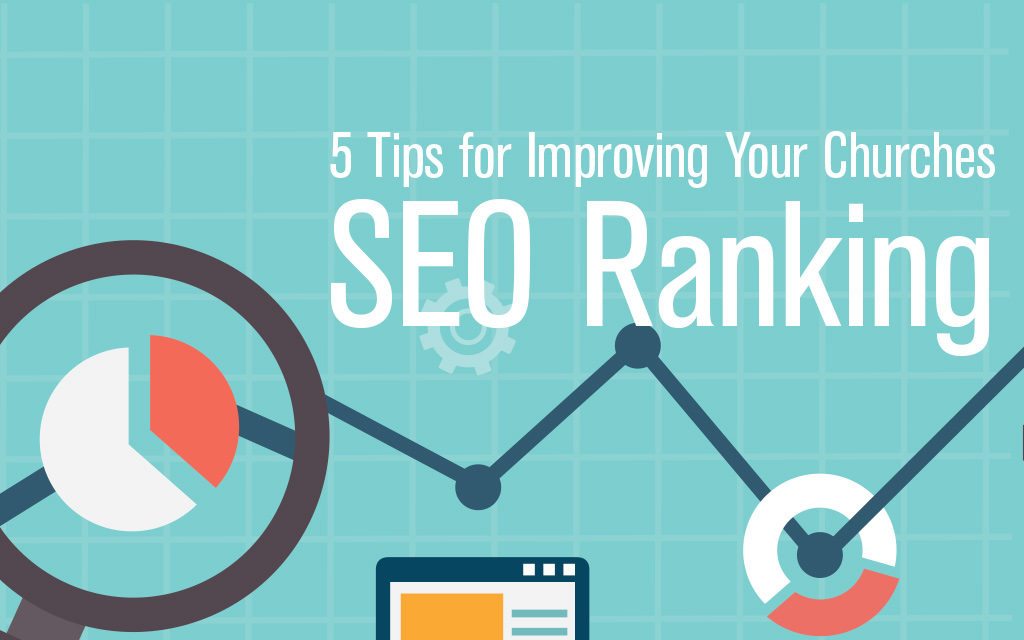
Have you ever done a Google search and NOT found what you were looking for? Probably not. It may take a couple tries to find exactly what you need, but thanks to the power of a search engine it doesn’t take long to find pertinent information.
Here’s how it works:
Google, Bing, Yahoo, and others, search the internet “reading” website content. They review the content, give it a quality rank, and tag it for future use. When someone does a pertinent search they then display the information based on the rank they have assigned to it. The higher the rank, the closer you are to the top of the list.
Why does this matter to your church?
Because the majority of search engine users never look beyond page one of the results. This makes it important to get your church as close to the top of the list as possible.
This is best approached with a plan for Search Engine Optimization (SEO).
At its core, SEO is the process of “optimizing” your website content to increase your rank so you appear higher in search results. A higher ranking equates to more unpaid “organic” traffic to your website.
Here is a list of 5 tips to improve your church’s searching engine ranking:
1) Make Sure Your Website Is Searchable by Google
Before you do anything else, you first want to determine that Google knows your website exists and is indexing it. Just because you have a web address, it doesn’t mean search engines are including you in their searches. The easiest way to accomplish this is to do a quick search for your site.
Example:
- Visit Google.com
- Type “site:[domain.com]”
- don’t include any extra spaces, the http:// or www. just type it directly a search of this type for FirstChurch would look like site:firstchurch.com
- Press ENTER
- Make sure that your website displays properly
2) Write website content with a visitor (and Google) in mind
Think about how you search for things in Google. When you want to find a restaurant, you search by food type or location. When you want to find an extra-curricular activity for your child you search terms connected to the activity. People looking for churches do the same thing. They don’t know the name of your youth group, children’s ministry or adult Bible study. They search based on phrases familiar to them – youth group, kids church, bible study, parish meeting, etc. Explaining the ministry using these familiar “keywords” will help search engines know exactly what you offer. Any additional information you can include about what the ministry is, will help also.
Example:
[Ministry Name] is our [Age Group] ministry. [Group modifier] gather each [Date, Time] for [Event Description].
[The Oasis] is our [Jr. High and High School] ministry. [Students] gather [Tuesday at 6:45 pm] for [fun, games, worship and Bible study.]
3) Claim Your Local Listings
Let online sources know you are authorized to maintain and manage your online presence by claiming ownership. Should you need to update information or make changes to your listing, this will speed up the process going forward. Each source has its own process that may involve: a phone call, postcard with validation PIN, or an email with verification.
Resources:
Google
Bing
4) Submit Your Website and SiteMap to Search Engines
Help search engines better index your website by verifying ownership directly with them. They offer the ability to submit a Sitemap along with this service. It is a digital listing of the pages you see as most important and worthy of search review.
Resources:
Google Search Console
Bing Webmaster Tools
5) Use SEO Plugin to Improve Tagging
If you are using WordPress for your website there are several tools available to help you manage your SEO. These provide places to assign a “keyword” or topic for each page, and to write a short description of the content included. Search engines use this info to better sort and rank your content.
Resources:
Yoast
All In One SEO